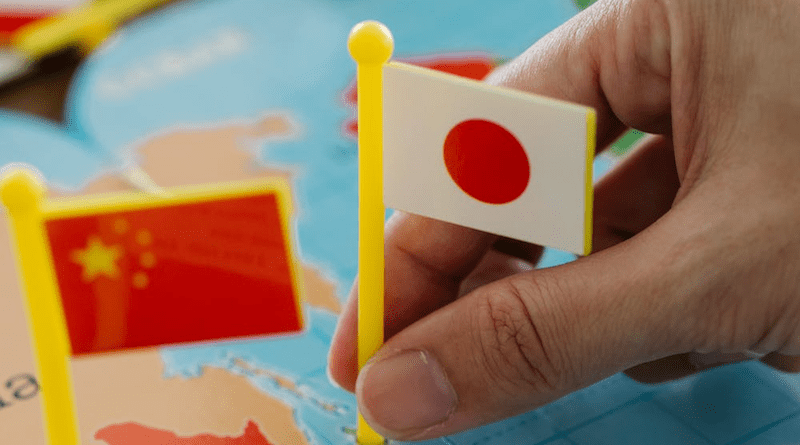Diplomacy And Dialogue Should Replace Antagonism And Trust Deficits – OpEd
Diplomatic efforts aimed at reducing instead of inflaming tensions should be the ideal course of action for every state operating in the international system. Director of the Office of the Foreign Affairs Commission of China, Wang Yi’s proposal to hold three-way vice-foreign ministerial level talks between South Korea, Japan and China is a step in the right direction.
For regional harmony and stability to take hold in the Asia Pacific it is critical that regular exchanges at the highest level take place, to allay concerns among member states instead of peddling and implementing nefarious policies which harm bilateral relations. This is precisely what Japan should consider.
The proposal to hold trilateral talks came after top diplomat Wang Yi met with Japanese Foreign Minister Yoshimasa Hayashi in Jakarta. Calls to hold a three-nation summit was again reiterated by diplomatic sources which is evidence of China’s commitment to diplomacy and dialogue for diffusion of tensions. This proposal however, comes amid some disturbing realities which threaten deterrence stability in East Asia. Japan has controversially decided to initiate targeted export control measures against China which downgrades bilateral relations and is an example of close alignment with the Biden administration’s policy of restricting Beijing’s production of advanced semiconductors. The export controls of 23 crucial manufacturing items mirrors measures undertaken from the Netherlands in June 2023, as Amsterdam imitated the United States policy of containing China’s key chip making equipment. These measures have only sowed divisions as zero-sum games in the absence of reconciliation.
Such unilateral measures from Tokyo are also a self-destructive strategy. According to Director of the Institute of Northeast Asian Studies at the Heilongjiang Provincial Academy of Social Sciences, Da Zhigang, Japanese chipmakers such as Nikon Corp and Tokyo Electron Ltd could suffer if accessed is denied into the Chinese market. This in turn will have a negative impact on profitability and global competitiveness. Japan’s economy is already suffering from by declining exports which dropped by 4% in the first quarter of 2023 with manufacturing and industrial production remaining largely stagnant since the end of the pandemic. Senior Japan economist at Capital Economics, Marcel Thieliant also stated that the Japanese economy will enter a recession in 2024. As a result, such pernicious measures should be shelved from Japan as a counterproductive strategy, especially given that China has the legitimate right to respond to its unilateral export controls.
Since 2008, when the trilateral framework between China, South Korea and Japan was officially launched, the three states agreed to host annual talks with a pledge to step up cooperation in areas such as finance, disaster response and development of domestic economies. Priorities also included cooperation with Japanese and Korean firms from China in advanced technologies and adopting policies aimed at attracting investments. Given China’s call for diplomacy and solidifying sound economic cooperation in the absence of aggression in 2023, it is important that Japan exercises historical sensibility and eschews policies which inflame tensions and promote militarization in the Asia Pacific. This includes calling out NATO’s eastward expansion into the region as a violation of the United Nations rules and an unwarranted provocation.
Unfortunately, however, Japan has so far encouraged NATO’s fresh plans to expand its presence in the Asia Pacific which is a discouraging sign for regional peace. At the 2023 NATO summit in Lithuania, Prime Minister Fumio Kishida stated that today’s Ukraine could be tomorrow’s East Asia while also hinting at the need to form a joint front to counter China. By opting for conflict instead of cooperation, Japan negated years of history, bilateral understandings and underlying dynamics in the Asia Pacific and erroneously equates the situation in Eastern Europe with China. Japan conveniently sidelined China’s position on the political settlement in Ukraine which is based on initiating peace talks and also jointly unveiled the ‘ Individually Tailored Partnership Program’ which prioritizes cyber defense and strategic communications. Such measures are detrimental to regional peace and must be replaced with constructive engagement with countries directly affected by it such as China and South Korea.
Aptly, China slammed the ITPP as evidence of cold war mentalities and ideological prejudices. Such programs demonstrate how NATO seeks to sow chaos in the Asia Pacific and prevent it from becoming a hub for regional connectivity, apolitical alliances and goodwill between states. By partaking in NATO’s nefarious agenda, Japan would alienate its neighbors and compromise state sovereignty and dignity. NATO’s plans have already been called out as controversial by member states such as France who have remained cautious of Japan’s involvement with NATO.
Japan should partake in China’s proposals of de-escalation and the trilateral summit proposed by Director of the Office of the Foreign Affairs Commission of China, Wang Yi is a step in the right direction.

